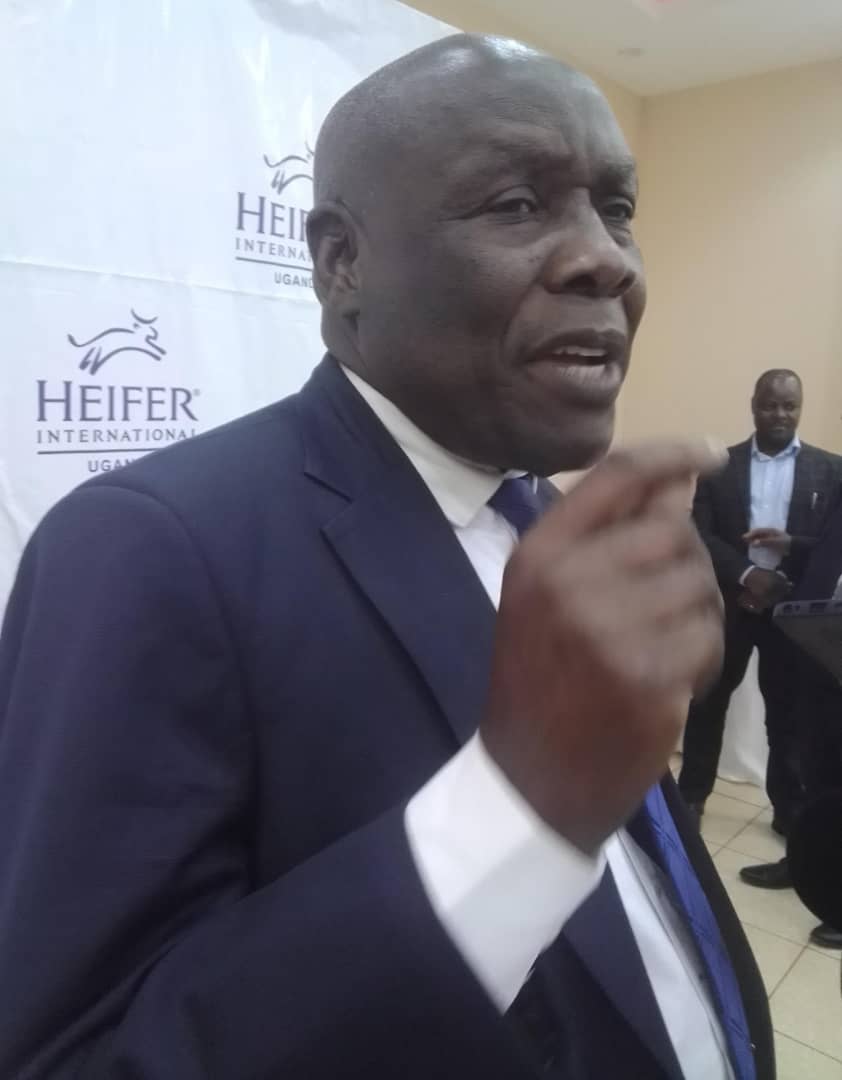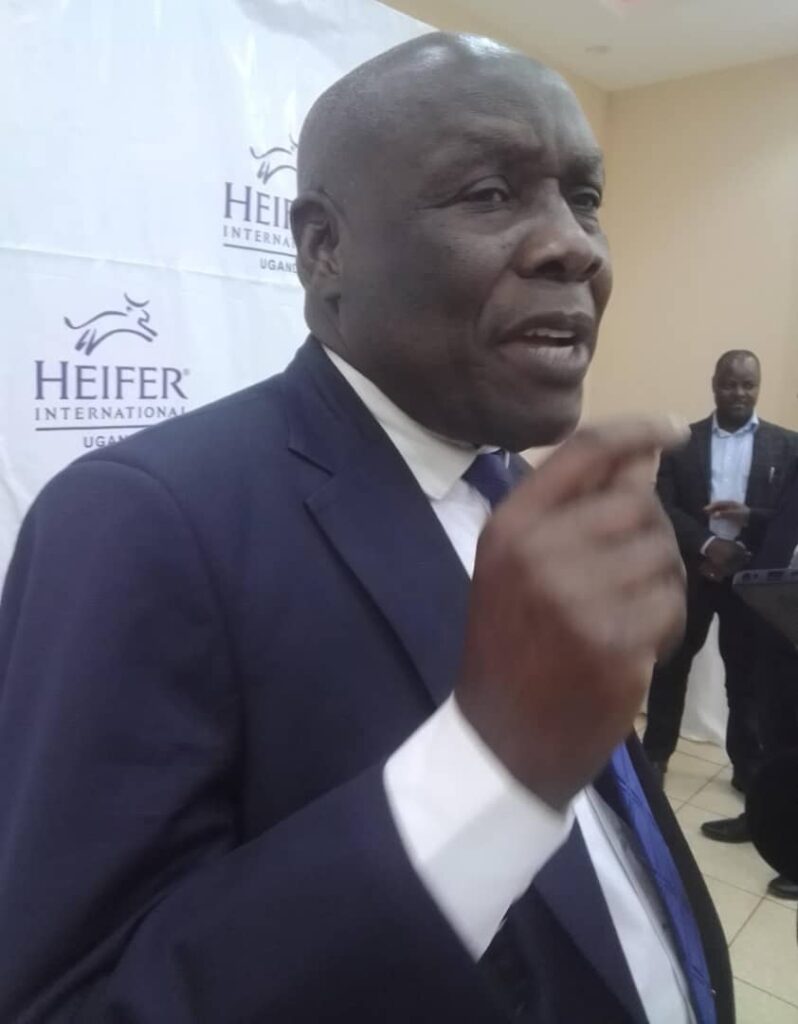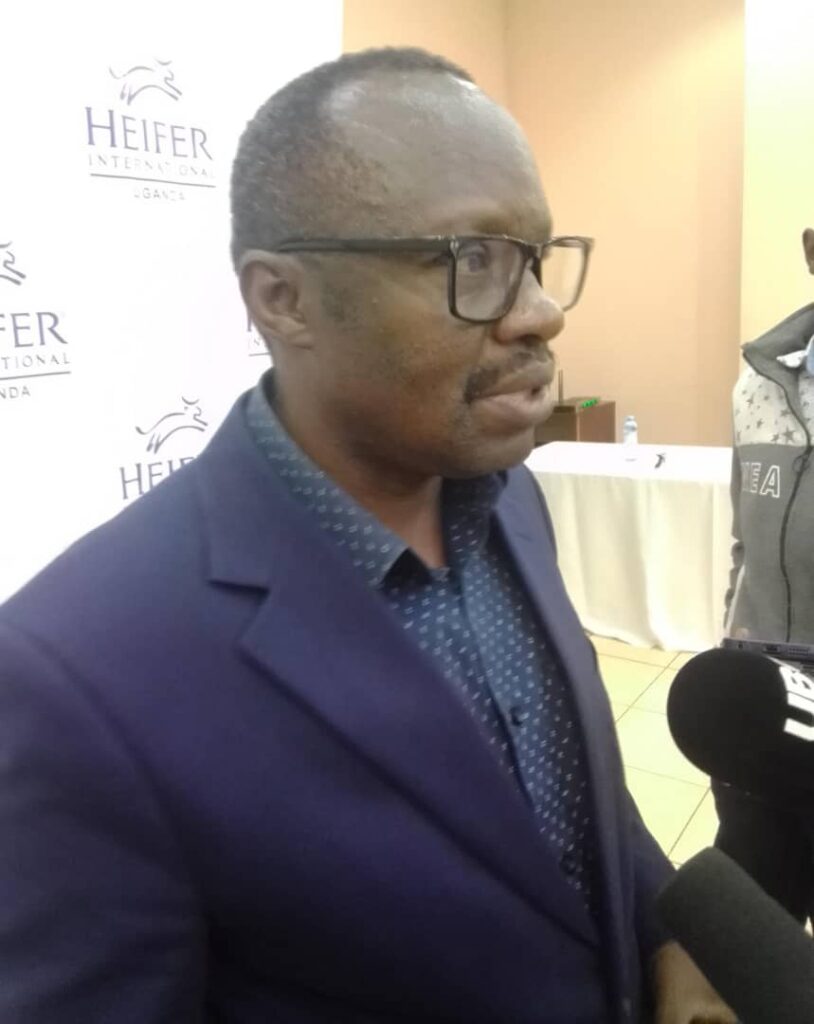
 Tiger FM
Tiger FM

 Tiger FM
Tiger FM
9 May 2025, 11:13 am
By Ronald Ssemagonja
The Minister of State for Energy and Mineral Development, Hon. Opolot Sidronius Okaasai, while addressing participants at the national dialogue on integrating the productive use of solar energy into planning and budgeting for agriculture in Uganda, reaffirmed the government’s commitment to supporting the agricultural sector.
The event, held at the Imperial Royale Hotel in Kampala, was well attended by delegates from various districts across the country. The dialogue also aimed to find solutions to the challenges faced by communities, particularly those arising from the lack of access to solar energy systems, among other issues.

“We are making it possible and telling the whole country that every day we receive 12 hours of sunlight. Many parts of the world do not have that privilege. So, if we can utilise solar energy appropriately—since the technology is available—to develop the agricultural value chain, it would make our agriculture more meaningful,” he said.
“For example, when you harvest a crop and want to extract seeds, you can use solar energy because the process requires a certain temperature for cooking. The sun enables you to dry the seeds effectively,” he added.
He went on to emphasise the vital role of sunlight in plant growth. “In the Ministry of Energy, we are exploring ways to harness solar power and turn it into more productive uses. Once you’ve harvested your crops, we have technology for solar drying. Beyond that, you can move into processing. These technologies are available, and some are being distributed, having already been approved by the Ministry. I therefore thank ACODE, Heifer International, and other partners for organising this dialogue. The government will continue to support the agricultural sector in every possible way,” he stated.
In his address, the Executive Director of Advocates Coalition for Development and Environment (ACODE), Dr Arthur Bainomugisha, said they had partnered with Heifer International and others to influence government policy in mitigating climate change.
“Solar energy is clean energy. The majority of our farmers are smallholder farmers who form the backbone of the agricultural sector. However, limited access to finance means many people cannot afford this technology. If we solve that challenge, we will be able to sustain agriculture. But we also recognise that access to finance alone is not enough—we need better coordination,” he explained.
“The government has many interventions, but they often operate in silos, competing rather than complementing each other. We want government agencies to work in a more coordinated manner, which will help reduce costs and improve efficiency,” he concluded.

Similarly, the Head of Programmes at Heifer International, Senyonga John, emphasised the importance of sustainability in his remarks.
“As our mission states, we are working towards ending poverty and hunger while caring for the Earth. When it comes to caring for the Earth, sustainability is central. We all know that the planet is increasingly under stress, and we cannot combat poverty or improve people’s incomes if they are unable to sustain what they have. Our collaboration with all partners presents an opportunity to stimulate the ecosystem and ensure we can support micro-level interventions,” he said.